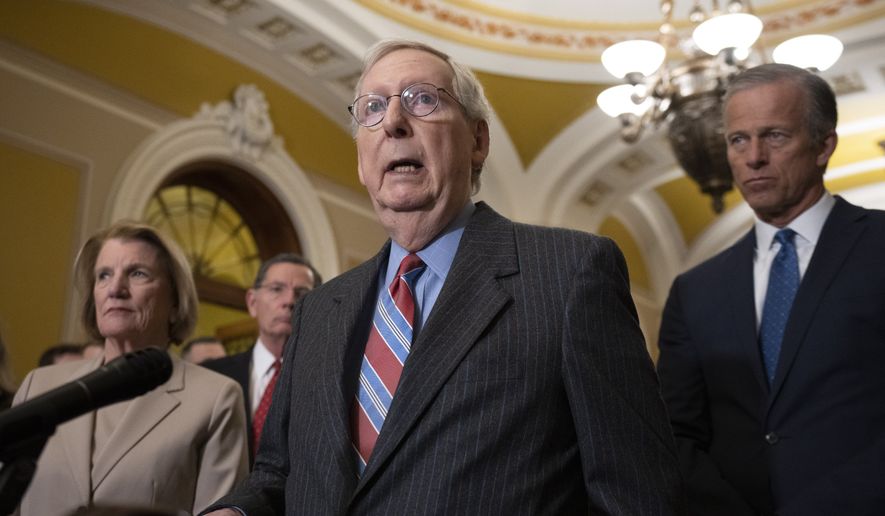Senate Minority Leader Mitch McConnell on Tuesday endorsed House Republicans’ demands for spending cuts in exchange for raising the nation’s borrowing limit to avoid defaulting on U.S. debts.
“I think it is entirely reasonable for the new speaker and his team to put spending reductions on the table,” he said.
But the Kentucky Republican said Speaker Kevin McCarthy of California will need to lead negotiations with President Biden to strike an agreement that can muster enough support among ultra-conservatives in the House.
A bipartisan deal struck in the Democratic-led Senate won’t work this time around — as has been done in previous years with many contentious spending issues — given the Republican-majority House, Mr. McConnell said.
“I can’t imagine any debt ceiling provision passed out of the Senate with 60 votes could actually pass this particular House,” he told reporters. “The final solution to this particular episode lies between Speaker McCarthy and the president.”
Mr. McCarthy and Mr. Biden are in the midst of a standoff, with negotiations nonexistent. Democrats have dug in their heels against Republicans’ demands to slash spending in the face of staggering national debt.
Mr. Biden and congressional Democrats have accused House Republicans of attempting to hold the debt ceiling hostage, while calling on Mr. McCarthy to detail his preferred spending cuts.
“If Republicans want to play brinkmanship with the deficit and demand cuts, they need to show exactly what they want to cut,” said Senate Majority Leader Charles E. Schumer, New York Democrat. “Let’s see what cuts they actually want to make and if they can pass any of them. I doubt it.”
The Department of Treasury said last week that the federal government ran out of money and that it will take “extraordinary measures” to avoid defaulting until likely in June, when Congress will face a firm deadline to either raise or suspend the $31.4 trillion debt limit.
Mr. McConnell noted that during a similar debt ceiling stalemate under President Obama, his negotiations with then-Vice President Biden yielded less government spending for the following two years.
“If you were genuinely interested in cutting spending, it actually worked,” he said. “If this isn’t a good time to talk about the debt, I don’t know when that is.”
• Ramsey Touchberry can be reached at rtouchberry@washingtontimes.com.




Please read our comment policy before commenting.